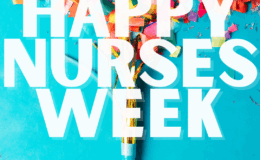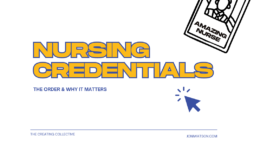This is part 16 of the Nursing Research Challenge.
The healthcare social media world has been a-buzz lately about nurse-physician relationships. We can attribute this hearty conversation, in large part, to Theresa Brown, RN’s New York Times op-ed. Others joined in providing perspective after perspective after perspective after perspective after perspective. What strikes me most reading posts and comments about the issue is that so many people, healthcare professionals included, grossly underestimate bullying within our altruistic fields even while it is clearly documented throughout nursing, medical, and social literature. This featured article is nine years old (which should give you perspective of how long this has been a researched issue), but it is still appropriate for the recent discussions.
The Article: Rosenstein, A. (2002) Nurse-Physician relationships: Impact on nurse satisfaction and retention. American Journal of Nursing, 102(6): 26-34.
Big Idea: A regional system of hospitals conducted the Nurse-Physician Relationship Survey to research the relationship between physicians’ disruptive behaviors and nurse retention and satisfaction. This study examines 1,200 responses from nurses, physicians, and hospital executives to 24 Likert-type items such as physician awareness of the importance of the nurse-physician relationship to nurse satisfaction, witnessing or experiencing physician disruptive behavior, physician value and respect for nurse input and collaboration, administrative support of nurses in conflicts with physicians, and satisfaction of the physician counseling process among other items. Groups’ (e.g. nurses’, physicians’, and executives’) responses were then statistically compared for significance.
Survey Says!: This article is chock-full of interesting data. Overwhelmingly – 92.5% of total respondents indicated they had witnessed disruptive behavior from a physician. 96% of nurses, 78% of physicians, and 92.3% of executives were witnesses of “yelling or raising the voice, disrespect, condescension, berating colleagues, berating patients, and use of abusive language” (p. 28). In regards to frequency of such behavior, 28% stated it occurred once or twice per month while 26% replied it occurred weekly. Nearly 31% of participants stated they knew of someone who left the hospital as a direct result of disruptive behavior, and nurses stated negative behavior also lead to other changes such as changing units, shifts, and schedules to avoid physicians with unprofessional behavior. Physicians rated nurse-physician relationships better than did the nurses and executives, and the lowest scoring item was in regards to physician awareness of disruptive behavior contributing to nurse dissatisfaction. Read the article for all the nitty-gritty data analysis. Dr. Rosenstein – that’s Alan Rosenstein, MD – notes that the survey results align with similar survey results reported in the literature.
Quotable: “The mean rating of respondents (n = 1,155) who said how serious an issue disruptive physician behavior was at the hospital was 7 (10 = most serious; SD = 2.93), with physicians ranking it a less serious issue than did nurses and executives” (p. 28).
On barriers/resistance to reporting disruptive physician behaviors: “‘Fear of retribution’ was the most common response among the groups, with 139 (44.1%) of 315 nurses, 67 (51.9%) of 129 physicians, and 15 (57.7%) of 26 executives specifying this as the primary barrier to reporting disruptive physicians” (p. 31).
“The Nurse-Physician Relationship Survey results, as well as a number of studies reported in the literature [citations], point to disruptive physician behavior as a disturbing, stressful force in the workplace, raising the question: How many physicians are aware that their day-to-day interactions with nurses can significantly affect nurses’ job satisfaction?” (p. 32).
So What?: It is clear from this study (and others) that disruptive physician behavior is a common occurrence that we all – nurses, physicians, executives, patients, and others – often gloss over. The article does discuss participants’ views of solutions to disruptive behaviors that are worth reading and trying within your organization, if applicable.
Dr. Rosenstein has published many more articles about disruptive behaviors, not only in regards to disruptive behaviors within specific clinical areas (e.g. emergency departments, obstetrics, perioperative) but also focusing on the correlation between such behaviors and negative patient outcomes as well as the healthcare management and economic impacts of healthcare professionals’ disruptive behaviors.
Please do not misconstrue me highlighting this article as pinpointing physicians as the cause of disruptive behaviors. By no means is that true. Again, the multidisciplinary research literature is rife with corresponding data for other healthcare professionals. Disruptive behavior, lateral violence, bullying…it is all our problem, and we must work together to fix it. Let’s acknowledge the evidence and move forward to individual, social, and system solutions.






Patric Paramedic
June 11, 2011 1:48 amI’ve personally kept notes on bizarre physician behavior around me for 32 years. I started doing so when one of our favorite lecturers at UCSD La Jolla was found Guilty of murdering his wife and two baby girls. The idiocy kept coming, so I kept scribbling.
One day while cleaning out the garage, I discovered a dusty old briefcase, bulging with notes on scraps of paper & EKG strips. So I wrote a book.
The purpose here is not to advertise; the purpose here is to underscore the regrettable fact that there could possibly be enough “daffy doc” material to write one. In my early research, I put the word out on medical forums, requesting true examples of doctor shenanigans. The rules were simple: If you don’t sign your name, it won’t be printed. I don’t mind reporting that I was a bit stunned at the 461 stories I received in less than 4 months. Mostly from nurses, but to be fair, at least 32 from doctors exasperated by their peers.
And now, two years after publication of a book that demonstrates the ungodly range of doctors acting out, I still get 30-40 emails from medical professionals nationwide, each and every week, detailing everything from the hilarious to the murderous.
So the answer from this quarter is – like Apollo 13 – “Houston, we have a problem.” And because of the outragious tendency by health care to allow its own cancers to fester while curing others, a considerable amount of unwelcome, outside influences are now brought to bear.
Any surprise on our part is childish. We brought the roof down on ourselves.
So my take is this: No discussion regarding ‘health care reform’ deserves even a single human breath, until we realize the only real way to change our predicament is to start by taking out the trash.
nursetopia
June 12, 2011 8:38 pmGreat points, Patric!